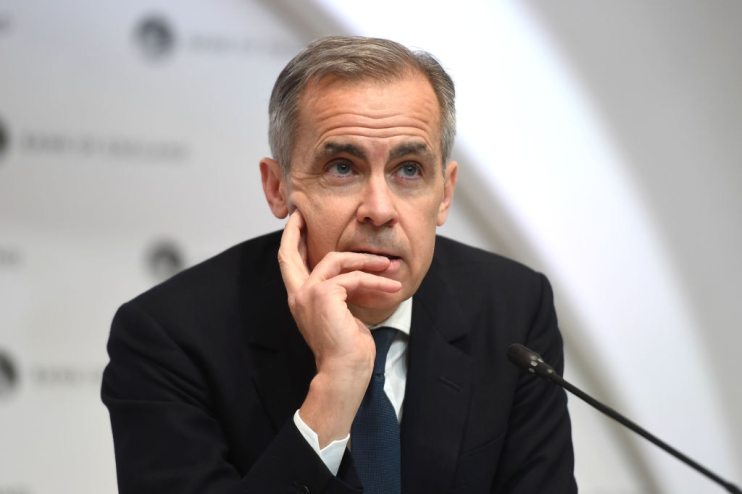Mark Carney, Exxon Mobil and the parable of purpose and turning a profit

Gfanz, the inelegant rendering of the even less memorable Glasgow Financial Alliance for Net Zero, is Mark Carney’s climate change vehicle. Last week, the former Bank of England Governor declared that it had mobilised $130tn in pursuit of net zero.
The figure is incredible. For context, it is more than six-times America’s GDP, and greater than the combined worth of all the world’s public companies. Unfortunately, it is incredible only in the older sense of the word. It is not credible at all.
Dig a little deeper and we discover that $130tn is the total capital held by Gfanz’s signatories: 450 financial institutions. It is therefore an overestimate, double-counting the funds these institutions lend to each other. More importantly still, this money is not funding green investments. In fact, much of the sum will currently be devoted to carbon-intensive industries.
That Gfanz is a wild exaggeration, however, does not lessen the importance of financial institutions in pursuing the organisation’s goal. And while size is important, it isn’t everything. If you know how to use it, you can do a lot with a little.
Earlier this year, one upstart investment fund proved precisely that. Founded by Chris James, who once ran Silicon Valley’s largest hedge fund, it is called Engine No 1, and it was designed to be different.
For one thing, Engine Number One is tiny, by the standards of the industry, with just $250m under management. For another, it pursues a purpose beyond profit alone.
Engine No 1 is an “activist investor” but of an unusual kind. Usually, the term simply means that an investor seeks to influence a company’s strategy, often by breaking it up or booting its chief executive.
Engine No 1’s goal is different. The fund is activist both as an investor and in relation to the climate. In 2020, it alighted on its first target: Exxon Mobil.
With a shareholding of just 0.02 per cent, it set out to clean up one of the energy industry’s most truculent laggards. James, with his partner Charlie Penner, pushed Exxon to begin a long-term transition to renewables. To do so, they proposed four candidates for Exxon’s board, all energy industry veterans committed to clean energy.
Notably, Engine No 1 activism was that of an investor, not a climate activist. Its argument for its board nominees aimed squarely at shareholders’ pockets. The fund’s argument, set out in a comprehensive 80-page presentation, was financial. If Exxon failed to prepare for the imminent and unavoidable energy transition, it argued, its long-term financial decline was guaranteed.
Aided by a propitious collapse in the global price of oil, Engine No 1 succeeded. Of the four proposed board members, three were elected by a majority of shareholders, including powerful and sizeable asset managers.
In the months since, energy industry watchers have indeed noted a change in Exxon’s behaviour.
The oil and gas giant has announced that it will build a huge carbon capture and storage plant in Texas. It will also start reporting its carbon emissions. Small steps perhaps, but a notable shift for one once only committed to intransigence.
For those who seek to follow in the footsteps of James and Penner, the Exxon story contains two important lessons.
The first is that shareholders have more power than they realise, even smaller ones, though the success of any campaign relies on persuading large shareholders to follow their lead.
The second is that, on Wall Street and in the City, money speaks louder than morals. An activist campaign must speak in the language of investors, not campaigners.
Given this, the promise of Gfanz, though exaggerated, is important. There is not really $130tn waiting to be directed towards green initiatives across the world.
But there are 450 organisations who have made a commitment, of sorts, and might feel compelled to lend their weight to a more committed activist’s campaign, especially if the pill is sugared by the promise of profit.
For would-be activists, this is an auspicious moment.
Those 450 financial institutions will have shareholdings, amongst them companies like Exxon Mobil. With a financial case to match the moral one, they could be encouraged to act. Engine No 1 proved to be the little engine that could.
Others should follow.